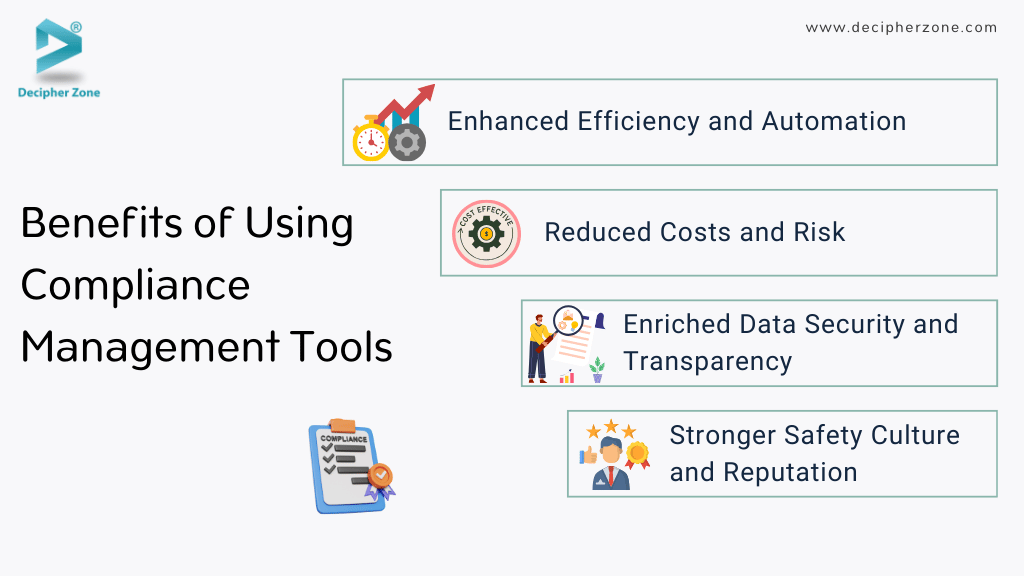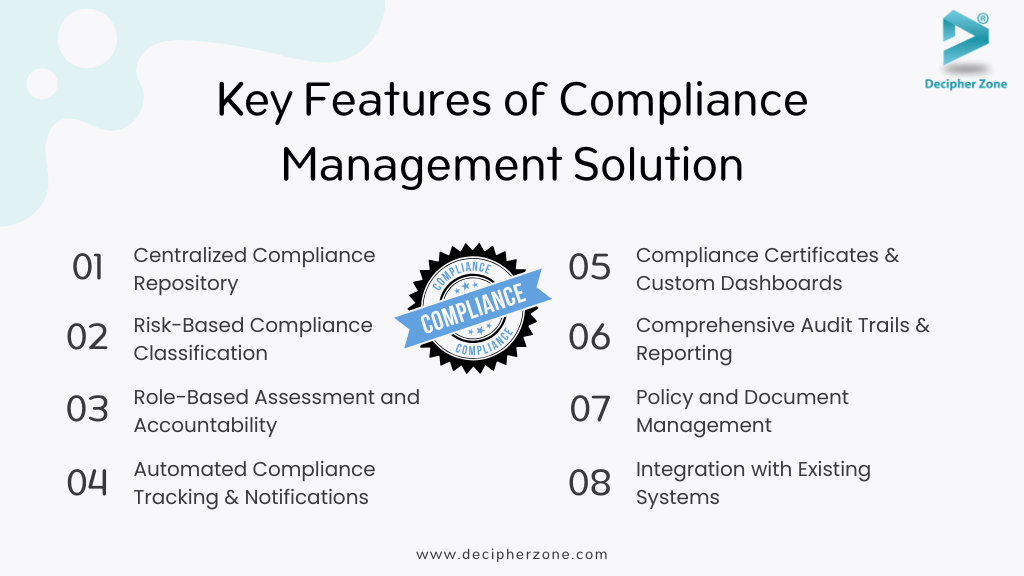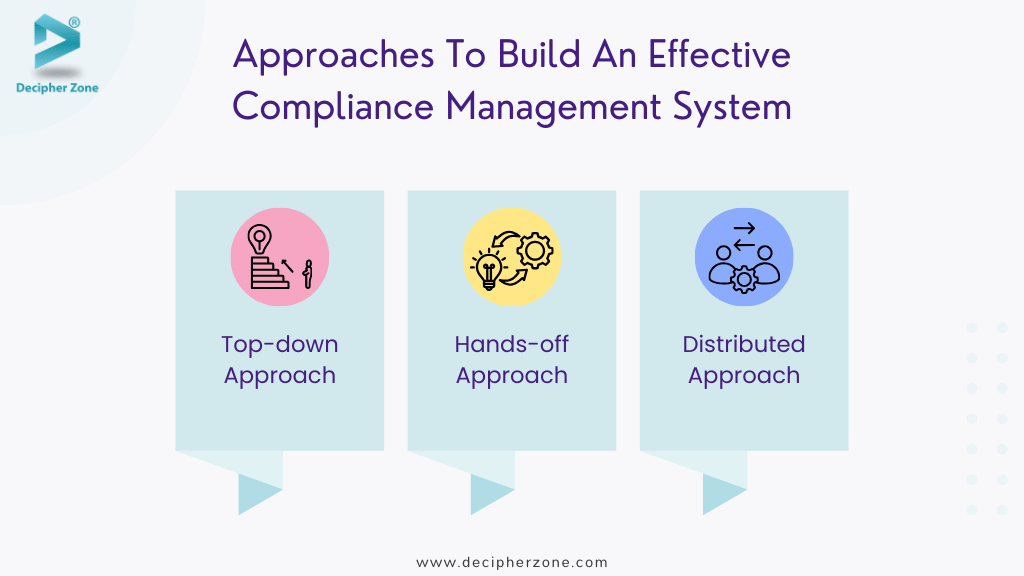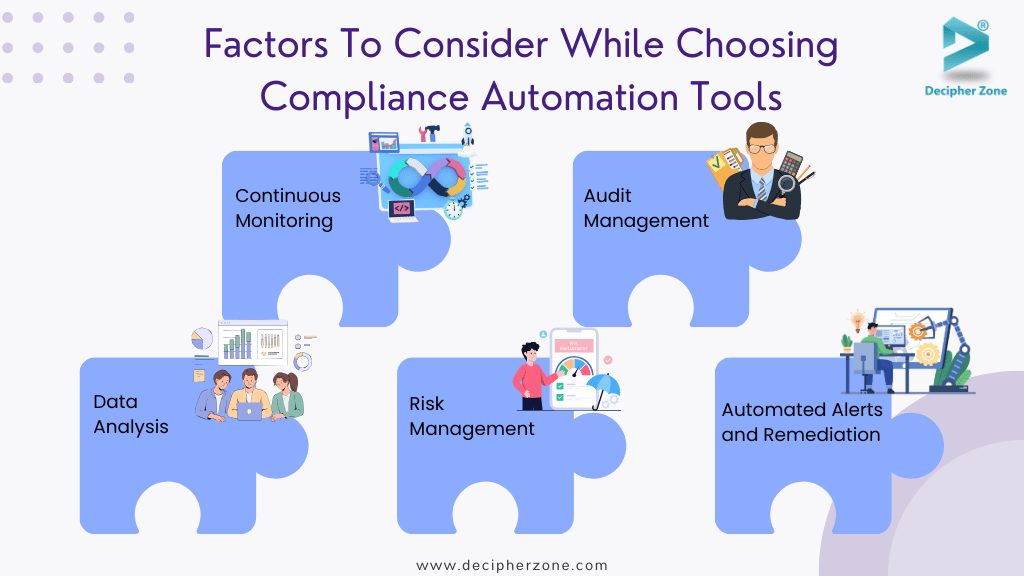Quick Summary: Compliance management software helps organizations meet a range of data security regulations, such as GDPR and HIPAA, as well as financial compliance requirements, including SOX and PCI DSS. These tools make it easier to navigate the complex regulatory landscape effectively. Explore this blog to learn more about compliance management softwares, focusing on their benefits, features, strategies, and important factors to keep in mind.
Regulatory compliance is more crucial than ever. Organizations across industries must adhere to a wide range of local, national, and international regulations to avoid legal penalties, maintain operational integrity, and build customer trust. However, managing compliance manually can be complex, time-consuming, and prone to errors.
Compliance management tools provide a streamlined solution to help businesses stay compliant effortlessly. These tools automate regulatory tracking, risk assessment, and reporting, ensuring that organizations meet industry standards with minimal hassle.
From data security regulations like GDPR and HIPAA to financial compliance mandates such as SOX and PCI-DSS, compliance management software offer tailored solutions to navigate the regulatory landscape efficiently.
This article explores the essential features and benefits of compliance management software, highlighting how they can streamline regulatory compliance adherence and safeguard business operations.
What is Compliance Management Software
Compliance management tools are specialized software solutions designed to help organizations stay in line with various regulations, industry standards, and internal policies.
These tools automate compliance processes, monitor adherence, and provide timely notifications about regulatory updates, ensuring that organizations effectively and efficiently maintain proper compliance.
Compliance management software is valuable for businesses of all sizes, aiding them in navigating the complex landscape of regulatory requirements and industry rules. By automating compliance tasks and keeping track of regulatory changes, these tools help organizations stay informed about best practices.
Essentially, compliance management software can streamline activities such as monitoring employee certifications and training records, as well as ensuring compliance with environmental regulations and safety standards.
Read: Custom Lease Accounting Software Development
Benefits of Using Compliance Management Software
Compliance management tools offer numerous benefits, including enhanced efficiency, reduced costs, improved data security, and a stronger safety culture, leading to better risk management and a stronger reputation.
Here are some of the benefits:

1. Enhanced Efficiency and Automation:
-
Automated Tasks: Compliance management tools automate time-consuming and repetitive tasks such as report generation, data collection, and record-keeping, freeing up staff for more strategic work.
-
Streamlined Processes: These tools help streamline compliance workflows, reducing manual effort and minimizing errors.
-
Improved productivity: By automating tasks and providing easy access to information, compliance management software enhance overall productivity and efficiency within the organization.
2. Reduced Costs and Risk:
-
Cost Savings: Organizations can avoid costly fines, penalties, and legal fees associated with non-compliance with the help of effective compliance management.
-
Risk Mitigation: Compliance management tools help identify and address potential compliance gaps and risks, preventing them from escalating into larger problems.
-
Reduced Operational Costs: By streamlining processes and reducing errors, these tools can lead to significant cost savings in the long run.
3. Enriched Data Security and Transparency:
-
Data Protection: Compliance management tools help organizations protect sensitive data by implementing robust security measures and controls.
-
Centralized Visibility: These tools make it easy to track and manage by providing centralized visibility and control over compliance activities.
-
Enhanced Transparency: To promote transparency and accountability, provide insights into compliance by detailed compliance reports and dashboards.
4. Stronger Safety Culture and Reputation:
-
Enhanced Safety Culture: Compliance management tools are essential for creating a safety-conscious culture within an organization.
-
Improved reputation: By demonstrating a commitment to compliance, businesses can enhance their reputation and build trust with stakeholders.
-
Employee Empowerment: Compliance management tools can empower employees by providing them with the necessary information and tools to perform their jobs effectively and compliantly.
Read: Immigration Law Software Development
Key Features of Compliance Management Software
A robust compliance management software comes equipped with a range of features designed to simplify regulatory adherence and minimize risks. These tools help businesses stay up-to-date with evolving regulations, automate compliance processes, and ensure seamless reporting.
From real-time monitoring to document management and risk assessment, the right features can enhance efficiency and reduce the burden of manual compliance tracking.
Learn more about “Is Compliance Tracking Necessary?” with this blog.

-
Centralized Compliance Repository
Maintain a single repository for all laws, regulations, compliance requirements, statutory forms, evidence, vendor details, and internal controls. This ensures easy access, version control, and organization-wide transparency.
-
Risk-Based Compliance Classification
Our compliance management tool enables risk-based categorization of compliance requirements. This feature allows businesses to focus on high-risk areas, helps prioritize compliance efforts, and implements necessary controls effectively.
-
Role-Based Assessment and Accountability
Clearly define roles and responsibilities for compliance tasks with built-in approval workflows and escalation mechanisms. This ensures accountability at every level and minimizes the chances of oversights.
-
Automated Compliance Tracking & Notifications
Stay ahead of compliance deadlines with automated alerts, reminders, and task tracking. Reduce manual follow-ups and ensure timely adherence to regulatory requirements.
-
Compliance Certificates & Custom Dashboards
Generate digital compliance certificates for Board and Management reporting. Leverage customized dashboards with real-time insights, analytics, and visual reports to track compliance status.
-
Comprehensive Audit Trails & Reporting
Maintain a detailed audit trail to ensure compliance transparency. Generate customizable reports that provide actionable insights for regulatory audits, internal reviews, and decision-making.
-
Policy and Document Management
Easily store, manage, and update compliance policies, procedures, and documents. Ensure version control and seamless access to the latest regulatory updates.
-
Integration with Existing Systems
Seamlessly integrate with ERP, HR, and financial systems to streamline compliance workflows and ensure data consistency across platforms.
Get Your Custom Compliance Management Software—Request a Free Consultation!
Approaches To Build An Effective Compliance Management System
To establish a comprehensive management system, it’s essential to adopt an approach that aligns with your specific business operations and model. Implementing effective compliance procedures within your organization involves actively engaging employees in the regulatory process.
By empowering them with the right tools and resources, you can cultivate a workspace culture that values compliance.
Key strategies for developing a successful compliance management system include:

-
Top-down Approach
The top-down approach to compliance modelling is characterized by its rigid structure, where senior management establishes the compliance procedures that must be followed throughout the organization.
This hierarchical method leaves little room for flexibility in compliance practices. But, it is particularly effective in settings such as hospitals and healthcare centers, where maintaining patient safety is of utmost importance and adherence to established protocols is critical.
-
Hands-off Approach
When it comes to compliance management, having some flexibility in the benchmarks can be quite beneficial while still achieving the desired outcomes. It’s important to note that flexibility doesn’t mean allowing for non-compliance: rather, it ensures that established compliance measures are executed correctly. Organizations may have some description in areas such as scheduling these benchmarks.
The hybrid work model serves as an illustrative example of a hands-off approach that allows employees to manage their working hours while adhering to set deadlines. Environments that prioritize results can effectively implement this hands-off strategy to promote both accountability and autonomy.
-
Distributed Approach
In a shared or distributed approach to compliance management, all stakeholders are responsible for prioritizing compliance within their respective environments. It is essential for everyone involved to understand the necessary actions required for compliance and the actions that must be avoided.
This model operates under the guiding principle of collective responsibility, encapsulated by the motto, “we’re together in this to prove we comply.” This collaborative approach is particularly relevant in sectors such as financial institutions and investigative agencies, where maintaining compliance is crucial for overall accountability and integrity.
Ready to Go Beyond Compliance? Contact Us for a Personalized Software Solution!
Factors To Consider While Choosing Compliance Automation Tools
When it comes to choosing the right compliance automation tools, it’s essential to evaluate several critical factors to ensure they align with your organization’s unique requirements.
Here are five core key factors explained in detail:

1. Continuous Monitoring
Continuous monitoring capabilities enable automation tools to track compliance status in real-time. This feature ensures that organizations remain informed about regulatory changes and compliance requirements without the need for manual oversight. By facilitate proactive identification and resolution of non-compliance issues, it significantly reduces the risk of incurring regulatory fines and penalties.
2. Audit Management
Audit management streamlines the process of preparing and executing audits. The automation tool is designed to encompass features for audit planning, scheduling, and execution, along with capabilities for evidence collection and documentation.
By ensuring that audits are conducted with efficiency, this functionality promotes the use of accurate and verifiable data, improving compliance readiness and enhancing the overall outcomes of audits.
3. Data Analysis
Data analysis capabilities are crucial for identifying organizational regulatory compliance risks and gaps. The automation tools are able to analyze large volumes of data from several sources, like regulatory requirements, internal policies, and operational activities.
Advanced analytics allows for to detection of patterns, anomalies, and potential areas of non-compliance, leading proactive risk migitaiton strategies.
4. Risk Management
Compliance management tool is designed to enhance risk management effectiveness by systematically assessing and prioritizing compliance risks based on their potential impact and likelihood. It is equipped to support various risk assessment methodologies, scoring frameworks, and treatment planning strategies.
This capability empowers organizations to effectively allocate resources to address high-risk areas, thereby ensuring ongoing compliance with regulatory standards and promoting a culture of proactive risk management.
5. Automated Alerts and Remediation
Automated alerts provide stakeholders with real-time notifications regarding compliance violations, upcoming audits, and changes in regulatory requirements. These timely alerts facilitate quick responses and necessary corrective actions, helping to minimize the impact of any non-compliance incidents.
Read: Global Business Management Software Development
Final Thoughts
Compliance management tools have become essential for businesses to streamline compliance processes, mitigate risk, and ensure adherence to industry standards. These solutions not only automate tracking and reporting but also enhance transparency, accountability, and efficiency across organizations.
Why settle for a one-size-fits-all approach when you can have a compliance management system tailored just for you? At Decipher Zone, we specialize in creating custom, scalable, and secure compliance solutions that blend seamlessly with your business operations.
Our goal is to help you remain compliant without the hassle. With our expertise in custom software development, we facilitate smooth integration, automation, and compliance tracking, making regulatory management a breeze.

Visit our website today to discover how our custom compliance management software development services can streamline your regulatory compliance effortlessly!
FAQs
What is compliance management software?
Compliance management tools are specialized software solutions designed to help organizations stay in line with various regulations, industry standards, and internal policies. By automating compliance tasks and keeping track of regulatory changes, these tools help organizations stay informed about best practices. Essentially, compliance management software can streamline activities such as monitoring employee certifications and training records.
How much does it cost to develop a compliance management system software?
The cost of compliance management system software varies based on factors like features, user licenses, deployment type (cloud or on-premise), and customization needs.
-
Basic Compliance Software: $30,000 – $50,000 (limited features, small-scale businesses)
-
Mid-Level Solution: $50,000 – $150,000 (custom workflows, automation, reporting, integrations)
-
Enterprise-Grade System: $150,000+ (AI-driven insights, multi-level access, advanced security, regulatory updates)
What are the features of compliance management system software?
There are several features of compliance management software including centralized compliance repository, risk-based compliance classification, role-based assessment and accountability, automated compliance tracking & notifications, compliance certificates & custom dashboards.

